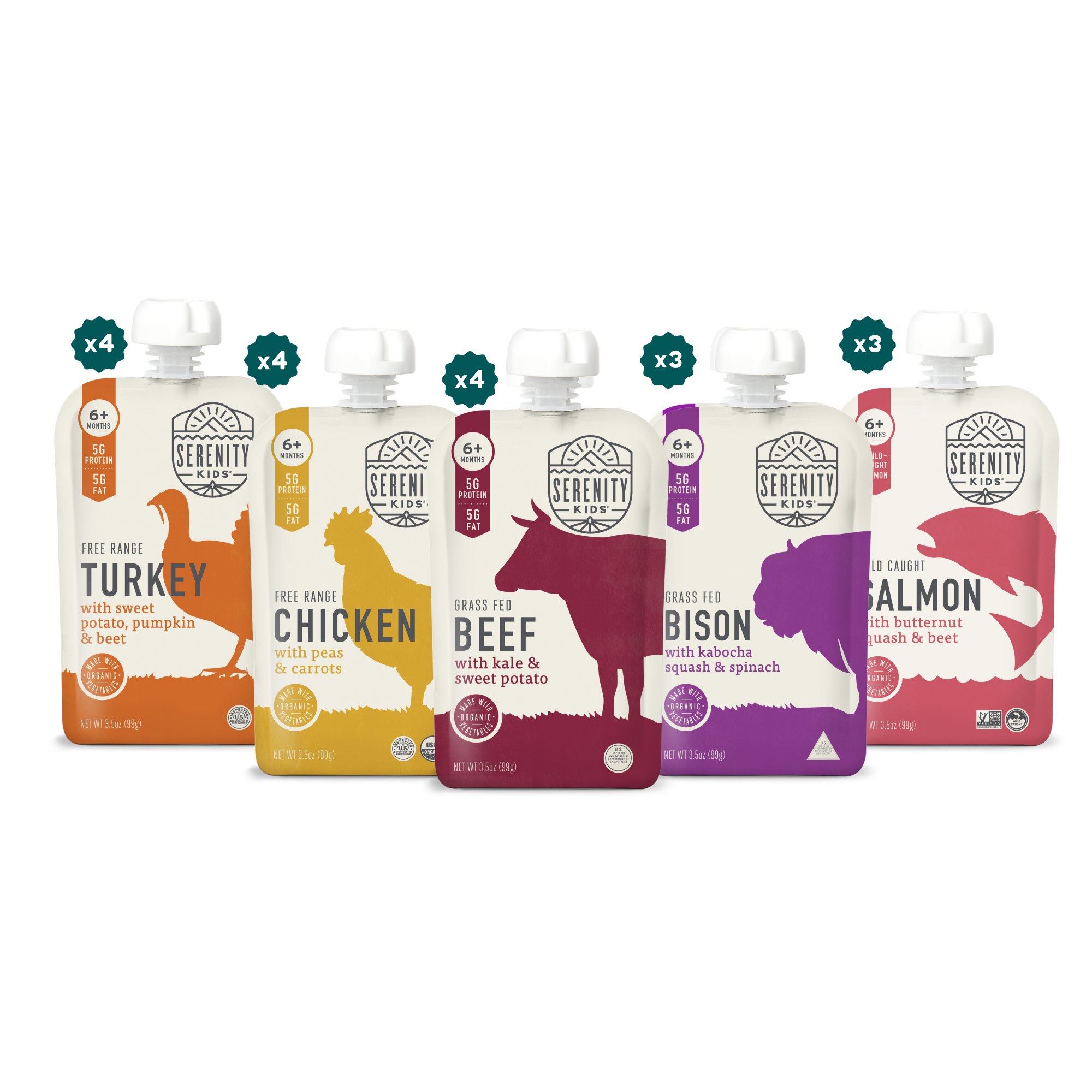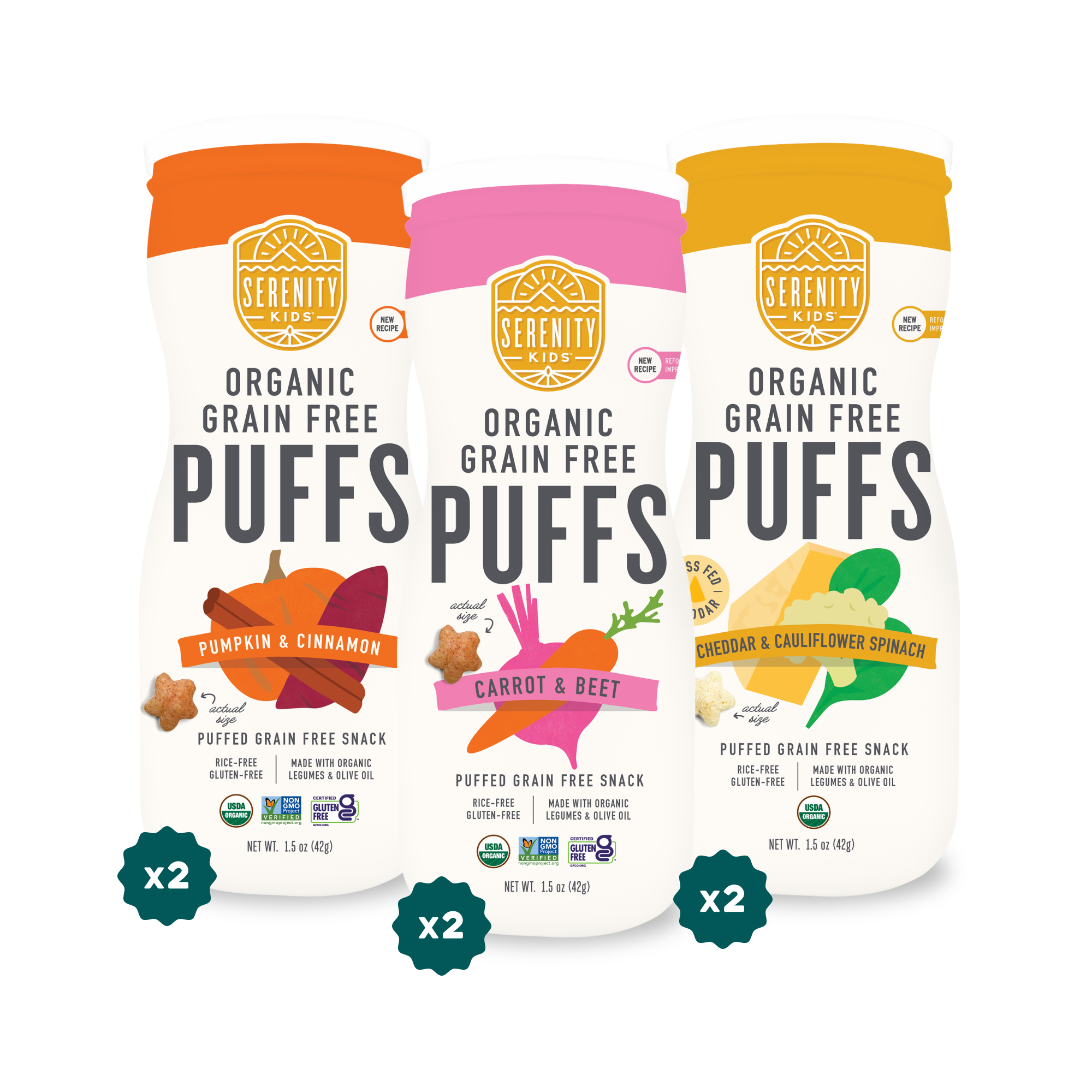TABLE OF CONTENTS
Written by Hillary Bennetts
December 28, 2024
New Mom Guide: 12 Tips For Breastfeeding Success

The Breastfeeding Rollercoaster: You're Not Alone!
Remember those first few days with your newborn? Pure bliss mixed with a healthy dose of exhaustion, right? Breastfeeding can feel like another layer on that emotional rollercoaster. Check out our blog post on Does Breastfeeding Make You Tired.
The pressure to "get it right" is intense, and let's be honest, the information overload can leave you feeling like you're drowning in a sea of conflicting advice. On top of that, the "Breastfeeding Success Handout" they gave you at the hospital doesn't come close to covering all the questions that you have.
Here at Serenity Kids, we understand the challenges new moms face. In fact, Serenity Carr, our Co-founder, knows this journey all too well. Her breastfeeding experience wasn't picture perfect. There were days filled with tears, frustration, and the gnawing fear that she wasn't nourishing her baby properly.
But here's the good news: Serenity found support, figured things out, and ultimately had a successful breastfeeding journey. And guess what? You can too! Breastfeeding offers incredible benefits for both you and your little one – from immunity-boosting antibodies to that beautiful bonding experience.
That's why we created this guide, packed with 12 practical tips to help you navigate the wonderful, messy, and totally rewarding world of breastfeeding. Consider it your roadmap to success, filled with encouragement, practical advice, and a whole lot of understanding. So grab a comfy spot, take a deep breath, and let's dive in!
The Powerful Perks of Breastfeeding: A Win-Win for You and Your Baby
Breastfeeding isn't just about nourishment; it's a beautiful bonding experience with incredible health benefits for both you and your little one. Here's a glimpse into the magic of breast milk:
Baby's Benefits:

- Immunity Booster: Breast milk is full of antibodies passed from mom to baby. These antibodies help protect your newborn from infections and illnesses, giving their developing immune system a head start.
- Brainpower Boost: Breast milk contains essential fats and nutrients that support optimal brain development. Studies suggest that breastfed babies may have higher cognitive scores and perform better on developmental tests later in life.
- Reduced Risk of Allergies and Respiratory Issues: Breastfeeding has been linked to a lower risk of allergies, eczema, and respiratory problems like asthma and wheezing in babies.
- Healthy Weight Management: Breastfed babies are less likely to become overweight or obese in childhood and later life.
- Reduced Risk of SIDS: Studies have shown that breastfeeding can significantly reduce the risk of Sudden Infant Death Syndrome (SIDS). The exact reasons aren't fully understood, but researchers believe it may be linked to factors like improved immune function, regulation of breathing patterns during sleep, and reduced exposure to environmental toxins that may be present in formula.
Mom's Benefits:
Faster Postpartum Recovery: Breastfeeding releases oxytocin, a hormone that helps your uterus shrink back to its pre-pregnancy size and reduces postpartum bleeding [link to scientific article on breastfeeding and postpartum recovery].
- Reduced Risk of Certain Cancers: Research suggests that breastfeeding may lower your risk of breast cancer and ovarian cancer.
- Stronger Bones: Breastfeeding can help maintain bone density and reduce the risk of osteoporosis later in life.
- Emotional Well-being: The skin-to-skin contact and close connection during breastfeeding can promote feelings of love, attachment, and reduced stress for moms.
Breastfeeding is a journey filled with unique moments and challenges for each mom-baby pair. But the incredible benefits for both of you, including a reduced risk of SIDS, make it a truly rewarding experience. So latch on with confidence, mama, and enjoy this special time with your little one! For information about Breastfeeding vs. Pumping, check out this informative blog post.
Tip 1: Skin-to-Skin Contact is Key
The very first cuddle with your new baby is more than just a heartwarming moment. Skin-to-skin contact is crucial for establishing breastfeeding. Studies have shown that skin-to-skin contact immediately after birth can trigger a cascade of hormonal changes in mothers, including a significant rise in oxytocin. Oxytocin, often referred to as the "love hormone," plays a crucial role in milk production (lactation). Skin-to-skin contact has also been shown to stabilize a newborn's heart rate, breathing, and blood sugar levels. Breast milk is a magic elixir of health!
Tip 2: Latch On Like a Champ for a Comfortable Feed
A good latch is key to a successful and comfortable breastfeeding experience for both you and your baby. Here's how to achieve a deep latch that ensures efficient milk transfer and prevents nipple soreness:
- Wide Open Mouth: Aim for your baby's mouth to be wide open when they approach your breast. You can encourage this by gently stroking their cheek with your nipple, triggering their rooting reflex. Then pull your baby's head into your breast for a tighter latch.
- Full Breastfeeding: A deep latch means more than just the nipple is in your baby's mouth. Ideally, a good portion of the darker area around your nipple, called the areola, should be in their mouth as well. This wider latch helps your baby express milk more effectively.
- Comfy Chin and Nose: Look for your baby's chin resting comfortably on your breast tissue, with their nose clear of your breast. This positioning allows for proper breathing and deeper suction.
Remember, a comfortable position is crucial for achieving a good latch. Experiment with different holds like the cradle hold, football hold, or side-lying position to find what feels most natural for you and your baby. If you're struggling with latching or experiencing nipple soreness, don't hesitate to seek help from a lactation consultant. They can provide personalized guidance and support to ensure a smooth breastfeeding journey.
Tip 3: It's a Buffet, Not a Schedule
Feeding on demand in the newborn stage isn't just about convenience, it's about establishing a healthy milk supply. Frequent breastfeeding in the early days leads to your body producing enough breast milk in the long run.
Tip 4: Hunger Cues: Your Baby's Superpower

Recognizing your baby's early hunger cues allows you to feed them before they become frustrated and fussy. This not only creates a smoother breastfeeding experience but also helps regulate your baby's blood sugar levels. Research suggests that early hunger cues like rooting, fussiness, and your baby's lips smacking are their way of communicating their need for nourishment before they reach a more distressed state.
Tip 5: Cozy Up for Comfort
Finding a comfortable breastfeeding position is crucial for both breastfeeding mother and baby. In fact, a study found that incorrect breastfeeding position was the major cause of breastfeeding troubles. A relaxed and comfortable mom can focus on feeding, and a well-positioned baby can latch effectively and transfer milk efficiently. Research published in the Journal Midwifery found that most new moms’ comfortable positioning can improve breastfeeding duration and latch success. Experiment with different holds like the cradle hold, football hold, or side-lying position to find what works best for you and your little one.
Tip 6: Breastfeeding and Sleep? It's Possible!
Those late-night feedings may feel endless, but breastfeeding can actually promote better sleep for babies. Breast milk contains tryptophan, an essential amino acid that converts to serotonin and melatonin, hormones that regulate sleep-wake cycles. During breastfeeding, calming hormones like oxytocin are also released in both mom and baby, promoting relaxation and drowsiness.
Tip 7: Fueling Your Amazing Body
Breastfeeding is hard work! Your body is constantly producing nutritious milk for your little one. To keep this amazing process going, you need to nourish yourself with a diet rich in healthy whole foods, including plenty of protein and fat. For more detailed information about Nourishing a Breastfeeding Mom, read our blog post! Studies have shown that a mother's diet directly impacts the nutritional content of her breast milk. Aim for a variety of colorful fruits and vegetables alongside plenty of protein and fat.
Tip 8: Hydration Hero
Breastfeeding can make you thirstier than usual because your body is producing milk and breast milk is about 88% water. Dehydration can impact milk production, so staying hydrated is crucial. Keep a reusable water bottle handy and sip frequently throughout the day. Aim to drink a glass every time you nurse and don't wait until you feel dehydrated to reach for water. Add electrolytes to support your own electrolyte balance. Electrolytes can also add some fun flavor to mix up plain water.
Tip 9: The Power of Positive Affirmations
Positive affirmations might sound "fluffy," but research suggests they can be a powerful tool for managing stress and self-doubt. A study in Psychology Today found that positive self-affirmations can buffer the negative effects of stress and improve overall well-being. By repeating positive affirmations about your breastfeeding abilities, you can boost your confidence and approach challenges with a more positive mindset.
Tip 10: Building a Support System

A strong support system is a science-backed factor in successful breastfeeding. Research found that social support from partners, family, and friends can significantly improve breastfeeding outcomes. This support can come in many forms, from emotional encouragement and practical help with housework to offering a listening ear during challenging moments. Consider joining a local breastfeeding support group to connect with other moms on the same path and share experiences, and talk with a lactation consultant for a wealth of breastfeeding knowledge.
Tip 11: Embrace the Hiccups and Hassles
Let's be real: breastfeeding isn't always sunshine and rainbows. However, perseverance and a positive attitude are key factors in overcoming breastfeeding difficulties. There will be days of frustration, missed latches, and maybe even a leaky mishap or two. It's perfectly normal to experience setbacks and challenges. Take a deep breath and remind yourself of all the amazing progress you've made!
Tip 12: Get Your Partner Involved
Dads play a vital role in breastfeeding success too! Partner involvement helps prevent mom burnout and allows for more mommy relaxation time. Check out this article on How dads can help nursing moms for fantastic tips on how dads can be incredible breastfeeding partners. Studies have shown that dads who are actively involved in childcare and support breastfeeding can significantly improve breastfeeding duration and overall maternal well-being. Here's a great blog post about the Best Bottles For Breastfed Babies, so that dads can get involved with the nighttime feedings!
Conclusion

Phew! You've made it through our 12 science-backed tips for breastfeeding success. Remember, these are just guidelines – find what works best for you and your unique little one. Celebrate every breastfeeding milestone, big or small. Each successful feeding is a victory! And don't forget the amazing benefits breastfeeding offers for both you and your baby. You're doing a fantastic job, mama! We're cheering you on every step of the way.
This time will pass quickly, and soon enough you'll be transitioning baby to solid foods. When that happens, Serenity Kids has so many nutritious and convenient baby food options. From Veggie Pouches to Meat Pouches to Toddler Formula, we'll be here for you!
You Might Also Like
· 1 min read · Recipes
· 7 min read · Education














































